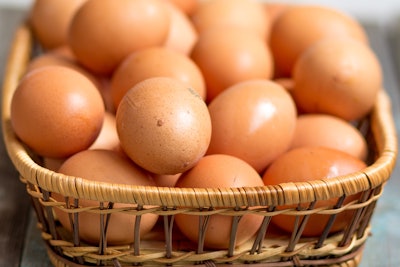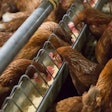
Egg producer Vital Farms announced the expansion of its egg washing and packing facility Egg Central Station located in Springfield, Missouri, on May 17, 2022.
The company’s expansion doubles the already 150,000 square foot facility in size, enabling added production capacity, and will provide over 50 new jobs for the local community.
Additionally, the expansion will be LEED (Leadership in Energy and Environmental Design) Silver Certified by using solar panels to decrease the producer’s electricity usage and greenhouse gas emissions.
Other environmental advances the producer will make as part of the expansion include LED lights to improve energy efficiency by 50%, bioretention tools to conserve at least 700,000 gallons of water annually, a water filtration system that reuses water for up to four hours and a new design that captures natural light and mitigates washroom humidity.
“Like everything across our business, Egg Central Station is a reflection of how we make decisions to support the long-term sustainability of our stakeholders who include farmers and suppliers, crew members, customers and consumers, communities and the environment, and stockholders,” stated Russell Diez-Canseco, Vital Farms President and CEO.
“It’s through this lens that we’ve created what I believe is the best food production facility in the country. We provide a work experience that is rare for production, meaningfully investing in the health, safety, and financial well-being of our crew members. We have also thoughtfully designed the facility to conserve natural resources and spend time supporting the community around us.”
Interest in environmental impact is spreading
Vital Farms is not the only egg producer working to improve its environmental impact.
In October 2021, Herbruck’s Poultry Farm announced the installment of a solar array at its egg and fertilizer Green Meadow Organics facility in Saranac, Michigan, which produces enough electricity to reduce the location’s energy consumption by 25%.
In May 2022, Gemperle Farms announced plans to remodel its egg barns to improve its sustainability and continue to reduce its energy usage. Additionally, the company stated in its first ever sustainability report it would increase its recycled material usage and reduce its downtime and food waste from equipment breakdowns by 75%.



















